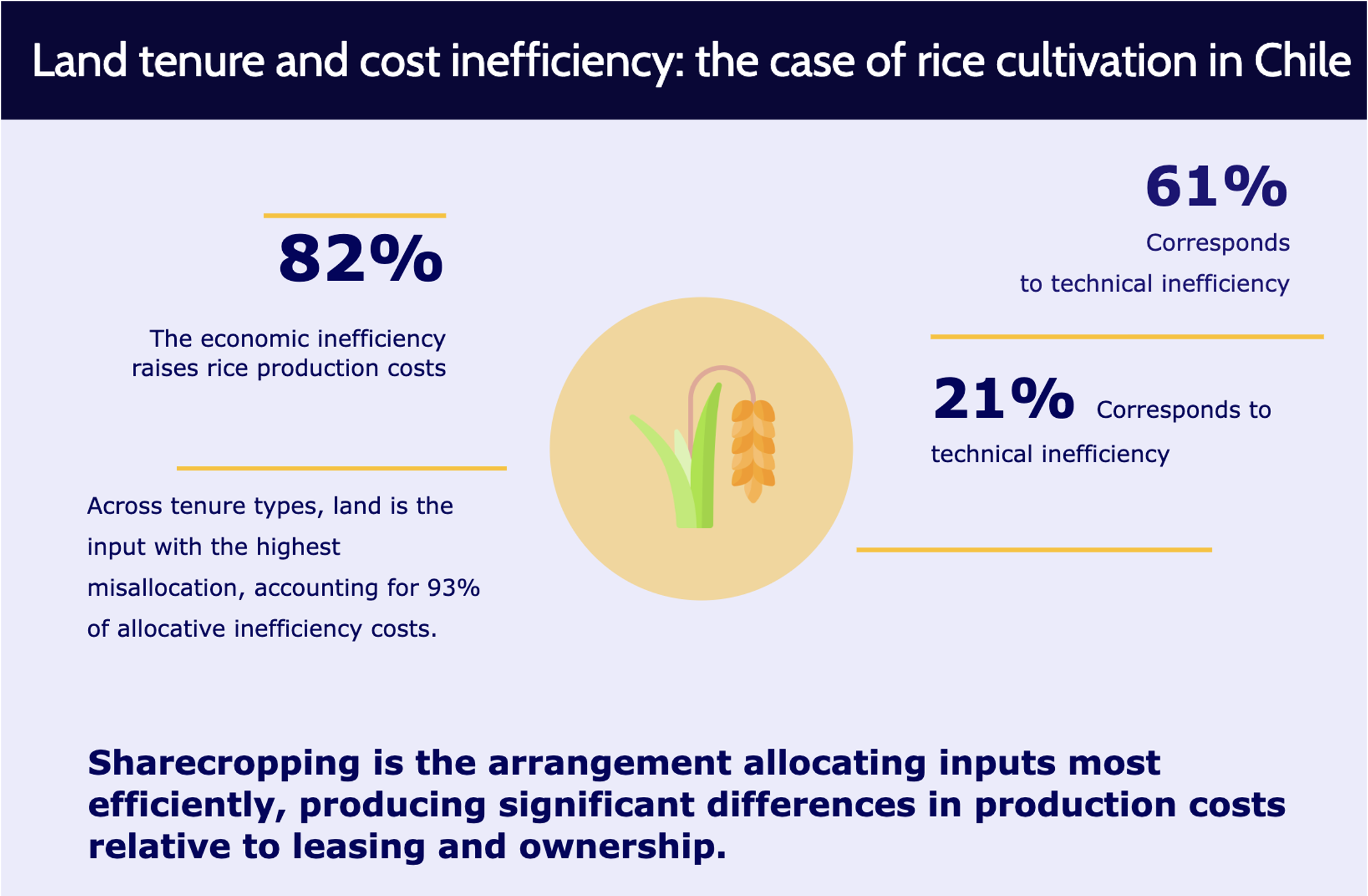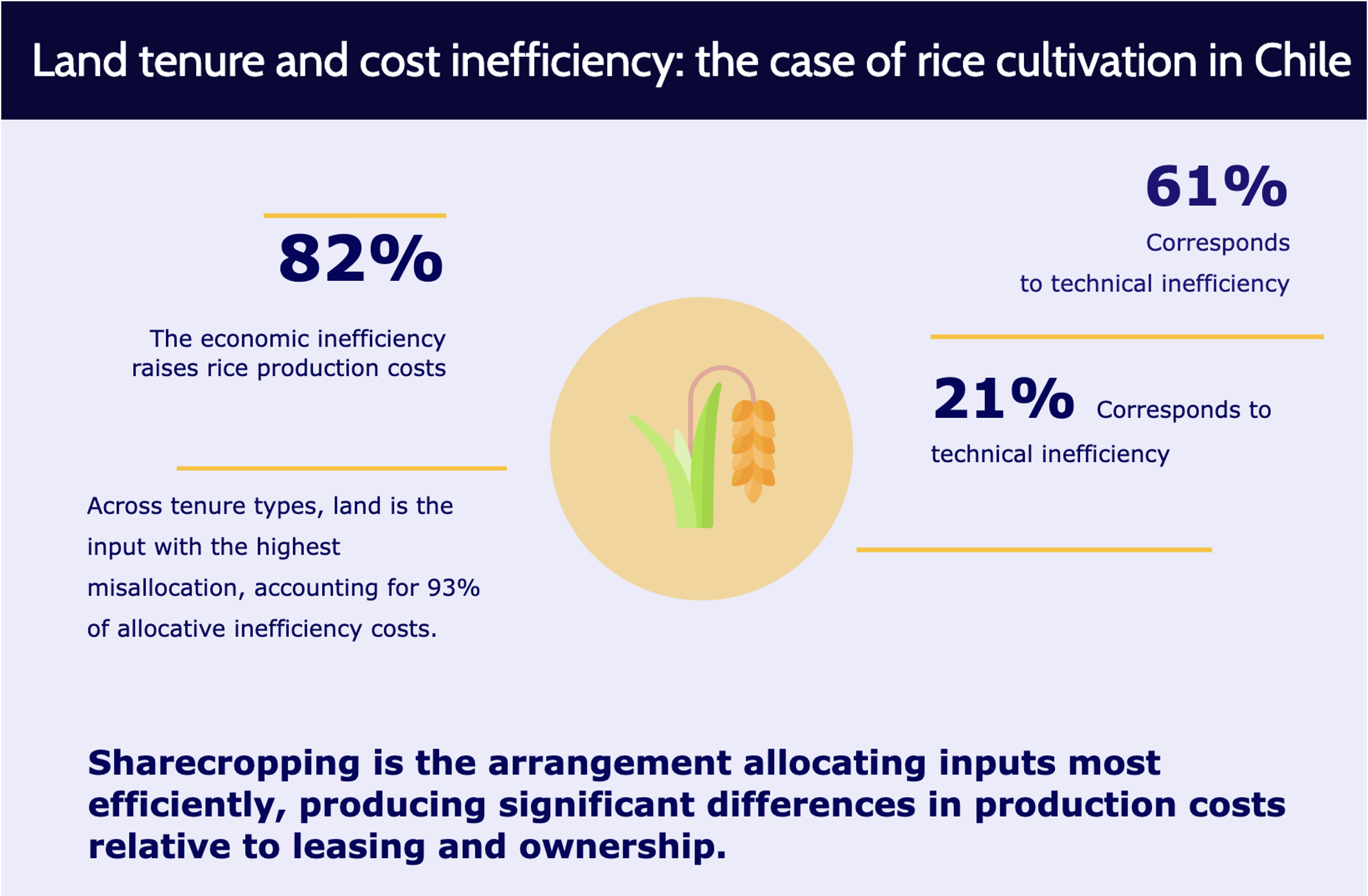Land tenure and cost inefficiency: the case of rice (Oryza sativa L.) cultivation in Chile
DOI:
https://doi.org/10.48162/rev.39.109Palabras clave:
producción de arroz, tenencia de la tierra, modelo estocástico, ineficiencia de costos, mala asignaciónResumen

This study aims to examine the impact of land tenure arrangements on production costs in a sample of rice farmers in Ñuble Region, Chile. A stochastic frontier model was estimated using the primal approach on a panel of 107 farmers in 2014-2015. Production cost was broken down into frontier costs and inefficiency. According to findings, economic inefficiency raises rice production costs by 82%. Technical inefficiency accounts for a 61% increase, while allocative inefficiency accounts for 21%. Across tenure types, land is the input with the highest misallocation, accounting for 93% of allocative inefficiency costs. Sharecropping is the arrangement allocating inputs most efficiently, producing significant differences in production costs relative to leasing and ownership. This finding suggests that before designing a policy to induce a tenure system, it is necessary to evaluate specific cases as there is no system superior to another, strictly speaking.
Highlights:
- Economic inefficiency raises rice production costs by 82%. Technical inefficiency accounts for a 61% increase, while allocative inefficiency accounts for 21%.
- The sharecropping system stood out as the most efficient, with production costs 13.5% lower than the rental system and 3.4% lower than those of the ownership system.
- Sharecroppers have a higher incentive to exert more effort and complete all responsibilities more efficiently, which can cut down on or do away with the costs associated with supervision that are typical in wage labor systems.

Descargas
Publicado
Número
Sección
Licencia
Derechos de autor 2018 Revista de la Facultad de Ciencias Agrarias UNCuyo

Esta obra está bajo una licencia internacional Creative Commons Reconocimiento-NoComercial-CompartirIgual 3.0.
Aquellos autores/as que tengan publicaciones con esta revista, aceptan las Políticas Editoriales.



